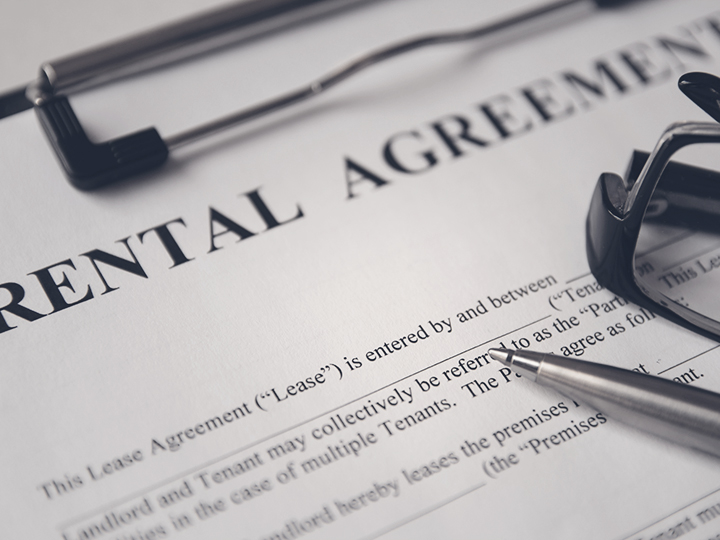September 28th, 2022
5 questions you need to ask before signing a lease
Tips & How to's
Blog

Signing a new lease comes with multiple important responsibilities and tenants must ensure they understand their rights and responsibilities before signing a rented property.
From understanding the lease contract to handling strata by-laws, here’s everything tenants need to know before signing a lease:
Simply put, a lease agreement is a binding legal contract between a landlord and a tenant, often with a real estate agency to act on the landlord’s behalf.
It establishes significant roles and responsibilities, including:
– Price of rent and payment frequency: it will state how much rent a tenant must pay, when to make the payment and what method of payment is acceptable.
– Lease term: leases can be fixed-term (six or twelve months for example) or periodic (month-to-month). Your lease agreement will state which of the two you are signing.
– Bond payment: a bond is a deposit of money made for the duration of your lease and will be deducted from if a tenant damages the property or has outstanding rent or bills. It’s normally requested and paid to the relevant state authority by the tenant or Property Manager on their behalf.
– Maintenance and repairs: the lease agreement must detail who is responsible for repairs and maintenance and under what circumstances.
– Condition report: a condition report which states the physical condition of the property at the time of the new lease agreement is mandatory in NSW and must be signed by both the Property Manager or landlord and tenant prior to commencement of the tenancy. This report can be used as evidence if there’s a dispute over the bond at the end of the lease.
– Termination conditions: understanding the notice period required if you or the landlord wish to terminate the lease.

Tenants have rights under Australian tenancy legislation, which varies per state and territory. They include:
– The right to a safe and habitable property: the property must be suitable for purpose in terms of health and safety.
– Privacy and quiet enjoyment: Property Managers or landlords are to provide notice in order to enter the property, including for inspections. They must also ensure there is no unreasonable noise disruption to the property.
– Repairs and maintenance: tenants must report issues immediately and landlords are to complete urgent repairs immediately.
– Fair rental increases: rent increases must meet state requirements, be reasonable and given within the legislated period of notice time for tenants.
The tenants also have responsibilities when leasing a property, including:
– On-time payment of rent: prolonged delay in paying rent may lead to eviction.
– Keeping the property clean: tenants are expected to maintain cleanliness and not damage or destruct the property.
– Compliance with lease conditions: violation of lease terms can lead to eviction.
– Respecting strata by-laws: each residential building will have varied strata by-laws, which tenants will be given when signing a lease. It’s important for tenants to familiarise with these by-laws and not violate them.

If renting a strata residence, such as an apartment or townhouse, tenants must comply with strata by-laws. Strata by-laws outline the rules of shared living and include:
– Pets: some strata schemes restrict the keeping of pets.
– Noise levels: tenants must observe noise controls to avoid disturbing others.
– Parking: strata by-laws may designate where and when tenants can park.
– Smoking: smoking can be prohibited in common areas or in apartments in certain buildings.
– Short-term rentals: laws may disallow tenants from subletting or from renting through websites like Airbnb.
A tenant should be provided with a copy of the strata by-laws by their landlord or real estate agent. Monetary fines can occur when by-laws are disobeyed.

Before putting pen to paper on a lease agreement, it’s important to:
– Read the document thoroughly: ensure that you are aware of all the terms and conditions prior to you signing and moving into the property.
– Check the property: ensure there are no damages and request repairs before moving in.
– Inquire about strata by-laws: clarify any restrictions that may affect your tenancy.
– Understand your rights: familiarize yourself with tenancy laws in your state.
By being informed, tenants can have an easy rental experience while protecting their rights and obligations.